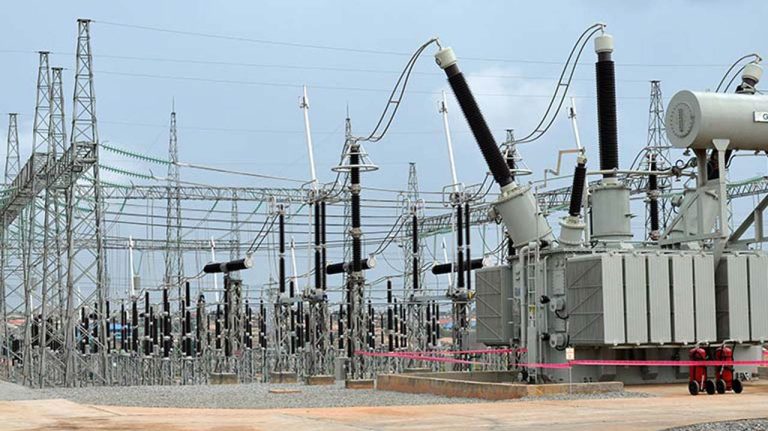THE worsening economic crisis being experienced by businesses may not be exclusive to the multinationals, as Nigerian Tribune’s checks revealed that Small and Medium-scale Enterprises (SMEs) are equally feeling the heat, induced by high cost of electricity and sometimes erratic power supply.
The small business owners also identified inappropriate billings, and indiscriminate upgrade of the environment where some of them operate to a premium band, as posing an existential threat to the survival of their businesses.
Lamenting to Nigerian Tribune, Mr Shola Makinde, a fashion designer, based in Aboru Area of Alimosho, in Lagos, noted that since the community was upgraded to Band A, the fortunes of small businesses have continued to dwindle in the area.
“Now they bring between N150,000 and N200,000 as electricity bills monthly for every building that has no meter in the community, not minding the fact that the inhabitants are low-income people and artisans, who may not be able to afford such costs.
“So where do they expect us to get the money? Unfortunately, there is no way we can transfer such operational costs to our customers. So, we are in a dilemma,” he stated.
Another fashion designer, Mr Richard Ayebo, stated that though the building where he operates has a pre-paid meter, the new tariff had, however, disrupted and slowed down his operations.
Richard said the major parts of his jobs, requiring electricity, can only be done in the evening now, when other co-tenants are around.
“We bought a N60,000 worth of electricity, few weeks ago and it only lasted for five days. Everybody felt short-changed, and the consensus now is that electricity will now be used as from 6 pm, in the evening, when everybody is around. But, this has continued to slow down my operations; since I can no longer deliver on my promises to my customers, on time,” he complained.
Richard, who has about 12 people in his employment, said he is considering trimming down the number; due to the limited time he now has for his operations.
Alhaja Ramat, an iced block seller in Sango, in Ogun State, has since closed shop, due to irregular power supply. According to her, generator had always been her alternative source of power in the past. But since the withdrawal of subsidy on petrol, resorting to generator to power her freezers no longer remains an alternative.
“Help tell the government to help; we are fast losing our means of livelihood. These DisCos are killing us,” she told Nigerian Tribune.
Interestingly, the Manufacturers Association of Nigeria (MAN) had earlier identified epileptic power supply and its exorbitant cost as one of the significant challenges that has continued to stifle the growth of the sector.
The association’s Director General, Mr SegunAjayi-Kadir, stated that about N221.28 billion, indicating a 265.9 percent or N160.81 billion increase, was recorded as expenditure on alternative energy in the second half of 2023, when compared to N60 47 billion recorded in the first half of that year.
It identified the 200 percent increase in electricity tariffs as the major cause of the present elevated operational costs in the industry, which contributed to reduction in the sector’s growth to 1.40 percent in 2023, from 2.45 percent recorded in the previous year.
But the Chief Executive of the Centre for the Promotion of Private Enterprise (CPPE), DrMuda Yusuf, would rather see this as part of the sweeping and choking reforms, that should have been done in phases.
According to the former Director General of the Lagos Chamber of Commerce and Industry (LCCI), the distortions that the ongoing reforms, including that of the power sector, are trying to correct had been in place for over 40 years, and as a result, done in phases.
“I believe businesses are feeling these pains because the policy prescriptions as far as social context is concerned are not robust enough. The human elements of the reforms are extremely important, but unfortunately, they are not there.
“For instance, the reforms should have been sequenced to allow citizens and businesses that breathing space,” he added.
A finance expert and public affairs analyst, MrBiyiAdesuyi warned that the present situation portends grave danger for the nation’s economy.
“The SMEs are the largest employers of labour. If the costs of power are becoming unbearable for them, some of them may close shop, and this would have some telling effects on the economy.
“For instance, they will definitely not be in a position to contribute their own quota to the nation’s economy, a development that may see Nigeria drop from its position in Africa as the 4th largest economy. Remember, in the past it used to be the first,” the Wealthgate Advisors boss noted.
READ ALSO: Revenue collector crushed to death in Lagos
Get real-time news updates from Tribune Online! Follow us on WhatsApp for breaking news, exclusive stories and interviews, and much more.
Join our WhatsApp Channel now
